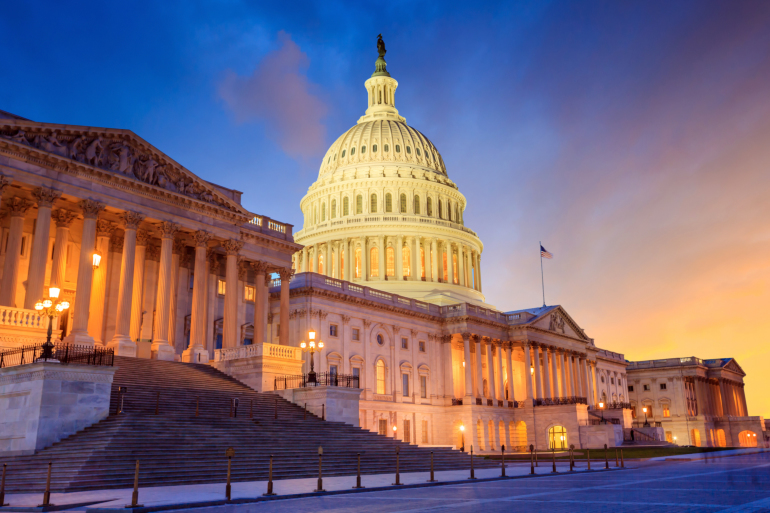Legal Update
Feb 19, 2021
Waistbands Aren’t the Only Thing Requiring Flexibility During the Pandemic: IRS Clarifies Guidance on Latest FSA Provisions and Offers Additional Relief
Seyfarth Synopsis: The Consolidated Appropriations Act of 2021 (“CAA”) offers significant relief for employers sponsoring flexible spending accounts (for a more detailed description of those changes, check out our alert). After much clamoring from the employer community, the IRS finally issued clarifying guidance in the form of Notice 2021-15 (the “Notice”). Notably, the guidance included new, additional relief that extends certain flexibility from earlier notices (Notices 2020-29 and 2020-33) into the 2021 calendar year.
Clarifying Guidance
Full Carryover/Grace Period Permitted for HCFSA or DCFSA for 2020 and 2021 Plan Years
Typically, carryovers of unused balances were not permitted for dependent care FSAs (DCFSAs) at all, and health care FSA (HCFSA) carryovers were limited to $550 (as adjusted for inflation in accordance with IRS Notice 2020-33). Employers sponsoring an HCFSA or DCFSA could implement a grace period, not to exceed 2.5 months after the close of the plan year, during which participants could continue to incur expenses to spend down their remaining FSA balances.
The CAA permits a full carryover of any unused balance under either an HCFSA or DCFSA for plan years ending in 2020 and 2021. In the alternative, it allows employers to offer a grace period of up to 12 months following the close of the 2020 and/or 2021 plan years.
The Notice includes the following clarifications to these provisions:
- The carryover or grace period can apply to an HCFSA, a DCFSA or a limited purpose HCFSA (i.e., an HSA-compatible FSA that can be used for dental or vision expenses and/or post-deductible medical expenses).
- The provision does not permit cross-pollination of HCFSA and DCFSA balances. Remaining health care dollars can only be use for the next year’s HCFSA and remaining dependent care dollars can only be used for the next year’s DCFSA.
- The carryover option is available for plans that already had a carryover, plans that previously had a grace period, and plans that had neither a grace period nor a carryover. The same flexibility applies for implementing a grace period.
- If a plan had an extended grace period for the 2019 plan year (pursuant to the relief provided in IRS Notice 2020-29), then any amounts remaining as of the end of that grace period as of December 31, 2020 (or, such earlier date within the 2020 calendar year, as elected) would be eligible for carryover into 2021. On the other hand, 2019 balances remaining solely because of the DOL’s pandemic relief extending claims deadlines during the “Outbreak Period” would not be eligible for carryover.
- As is normally the case for carryovers, an employer may require that employees make a minimum deferral election to access prior year funds available for carryover. To the extent the employer requires such a minimum, if an employee initially declined to enroll but later elects to enroll (either due to a mid-year election change event or because the employer has offered election change flexibility), the employer may permit the employee to access such carryover amounts and use those amounts for expenses incurred between January 1, 2021 and the date of the employee’s mid-year election to participate.
- Employers can limit the carryover or grace period to an amount less than the full balance, and may limit the carryover or grace period to a window less than the full plan year.
- For participants who may be switching from a non-HDHP with a general purpose HCFSA to an HDHP, the carryover or grace period would generally impact HSA eligibility. To mitigate this impact, employers may either:
- allow participants to opt-out of the carryover or grace period;
- allow participants to elect to convert the carryover or grace period balance to a limited purpose HCFSA; or
- automatically convert the carryover or grace period balance to a limited purpose HCFSA.
This is notable in that existing IRS guidance did not seem to allow for such a participant-by-participant grace period opt-out/conversion feature (it was only expressly allowed for carryovers).
- Amounts available during the extended grace period or carryover are disregarded for nondiscrimination testing.
- Employers can adopt a carryover for the HCFSA and a grace period for the DCFSA (or vice versa).
- Any amounts carried over under the CAA (pursuant to a carryover or grace period) are disregarded for purposes of DCFSA W-2 reporting.
- While balances available at the end of a grace period are typically forfeited, the Notice clarifies that the forfeiture requirement does not apply here because the full-year grace period would extend through the next plan year rather than ending at the end of the plan year. As such, if a plan adopts a grace period (rather than a carryover), 2020 balances can be available through the 2021 and 2022 plan years.
- This means the main practical difference between adopting a grace period or a carryover under the CAA relief is the availability of a spend down beyond the year of termination for a terminated employee. As described in the next section, this continued participation is only available under a plan with a grace period, not a carryover. Given this subtle difference, the IRS would require that an employer specify whether it has adopted a grace period or a carryover in its plan amendment.
Continuation of Participation in HCFSA by Terminated Participants
Typically, employers could permit former DCFSA participants to continue to spend down balances on post-termination qualifying expenses for the remainder of the year, but HCFSA participants could only continue participation post-termination if they were eligible for and elected COBRA.
The CAA permits employers to allow former HCFSA participants who terminate during 2020 or 2021 to continue participating post-termination, through the end of the plan year in which they terminated (plus any grace period).
The Notice includes the following clarifications to this provision:
- Employers may limit the length of the post-termination participation period, if desired.
- Employers may limit the post-termination balance to the participant’s year-to-date contributions at the time of termination (rather than the full year election amount, as would typically be required under the uniform availability rules that apply to HCFSAs).
- This provision may only extend coverage beyond the end of the plan year in which the termination occurred if the plan has a grace period. It is not available for carryover balances into the plan year following termination.
- Notably, this provision does not eliminate the requirement to send a COBRA notice where applicable.
Special Relief under DCFSA For Aged-Out Dependents
Typically, DCFSAs can reimburse expenses incurred for qualifying child care for children up to age 13.
The CAA allows plans to temporarily raise the eligible age limit to 14, but only for amounts contributed during the plan year with an enrollment period ending on or before January 31, 2020 (for calendar year plans, the 2020 plan year).
The Notice includes the following clarifications to this provision:
- Employees can seek reimbursement for expenses incurred in the 2020 or in the 2021 plan year for aged out dependents (those between 13 and 14), if the employer adopts a carryover or grace period provision carrying forward unused 2020 DCFSA election amounts.
Relaxed Election Change Guidelines for FSAs
Typically, FSA elections are irrevocable during the plan year, unless the employee experiences a mid-year status change event and timely notifies the plan administrator of the event.
The CAA permits employers to allow mid-year election changes for FSAs without regard to whether such employee incurred a qualifying life event, for plan years ending in 2021.
The Notice includes the following clarifications to this provision:
- The CAA permits employers to allow an employee who previously declined to enroll in the HCFSA or DCFSA to make a new election to enroll. (Some had speculated this provision only allowed election changes for persons who had an existing election in place.)
- Employers may limit the time period for making such an election (e.g., an employer could establish a two week window in March to permit election changes).
- If an employee revokes an election mid-year, the employer can decide whether to continue to allow the employee to spend down accumulated amounts on future expenses or to limit the employee to reimbursement of expenses incurred prior to the revocation.
- While FSA election changes may only be prospective, the IRS would permit employers to allow employees to use such prospectively elected FSA deferrals for expenses incurred after January 1, 2021, but before the date of such election change.
- If an employer elects to limit reimbursements from a general purpose HCFSA following revocation to expenses incurred prior to revocation, then the employee will not be treated as being enrolled in disqualifying coverage for HSA purposes starting with the month following such revocation.
New Guidance
Extension of Relaxed Election Change Rules to non-FSA Elections
While the CAA only relaxes election change guidelines for FSAs, the Notice extends such relief to all Section 125 elections, subject to similar parameters as outlined in IRS Notice 2020-29 (more on those limits, here).
The Notice provides employers with flexibility in choosing to implement (and/or limiting implementation of) this CAA provision and lists various types of “guardrails” an employer might put in place, including limiting elections to increases/enrollment, limiting the timeframe for elections, and limiting the number of election changes an employee could make during the plan year.
Amendment Relief for Pre-tax OTC/Menstrual Product Reimbursements
As described in greater detail here, the CARES Act permits plans to expand reimbursement under certain pre-tax vehicles (HCFSAs, HSA, MSAs, HRAs) to include over-the-counter drugs and menstrual products. The provision was effective retroactive to January 1, 2020, but unlike with other laws impacting Section 125 plans, the CARES Act included no relief from the general rule that amendments may only be made prospectively.
The Notice solves this dilemma by permitting employers to amend their Section 125 plan to expand permitted reimbursements at any time, with a retroactive effect to January 1, 2020.
We will continue to monitor and alert you of any new or additional regulatory developments clarifying provisions of the CAA. In the interim, please contact the authors of this Alert or the benefits lawyer you work with for additional information.



